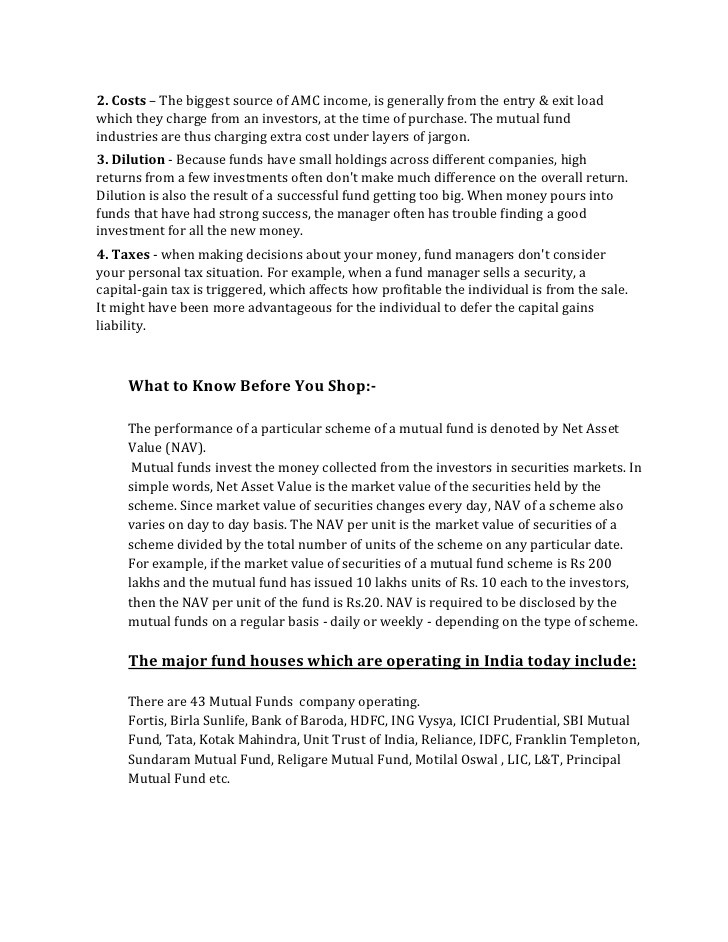Costs of Investing Part 1 Intro Individual Securities Mutual Funds
Post on: 8 Август, 2015 No Comment

Costs of Investing — Part 1 — Intro, Individual Securities, Mutual Funds/ETFs
Costs of Investing — How it Affects your Bottom Line - Part 1
Do you really know what the total costs of your investments are? It’s no secret that investment products come with expenses and other fees yet many people don’t know the total costs and how it impacts their investment return. It is imperative to know all of the costs of your investments because they impact your bottom line – your return on investment.
While some investment costs are straightforward and obvious, many are buried deep in a prospectus or otherwise hidden. Many people simply assume that their advisor communicates the total expenses. Unfortunately, many advisors do not because it may impact your decision to invest in their product. Below are some possible costs that you may be incurring, either from a product or advisor standpoint.
Individual securities (stocks, bonds):
Commissions — Either fixed amount per trade or % of transaction amount
Markup — Difference broker keeps between what they pay and you pay (often 4%-5%)
Mutual funds/Exchange Traded Funds (ETFs):
Expense Ratio (ER) — % of fund’s total assets deducted annually to cover fund operating costs; According to Morningstar, average Expense Ratio’s range from 1.25% up to 1.50%+
• Management and administrative fees: compensates portfolio management team at the fund company for operating and managing the fund
• 12b-1 fees: compensation paid to the advisor or broker who sold you the investment; most load funds have 12b-1 fees (no-load funds often do not); range anywhere from 0.25%-1.00% annually
Loads (sales charge)
• A shares (front-end): deducted at purchase and paid to broker who sold you the fund; commonly 5%-7% range

• B shares (back-end): deducted only if selling fund prior to certain period of time (usually up to 7 years); broker still gets paid as if front-end load
• C shares (contingent): similar to B shares but deducted only if fund sold within 1 year of purchase
The Expense Ratio for B & C shares are always higher than A shares due to higher on-going advisor compensation via 12b-1 fees
While every mutual fund has an expense ratio, actively-managed funds typically have a substantially higher expense ratio than passively-managed (or index) funds because of intense research costs. Many high-quality mutual funds are no-load funds and do not charge a load or 12b-1 fees.
Tracy Burke, CFP, ChFC
Investment Consultant
Conrad Siegel Investment Advisors, Inc. Harrisburg PA














